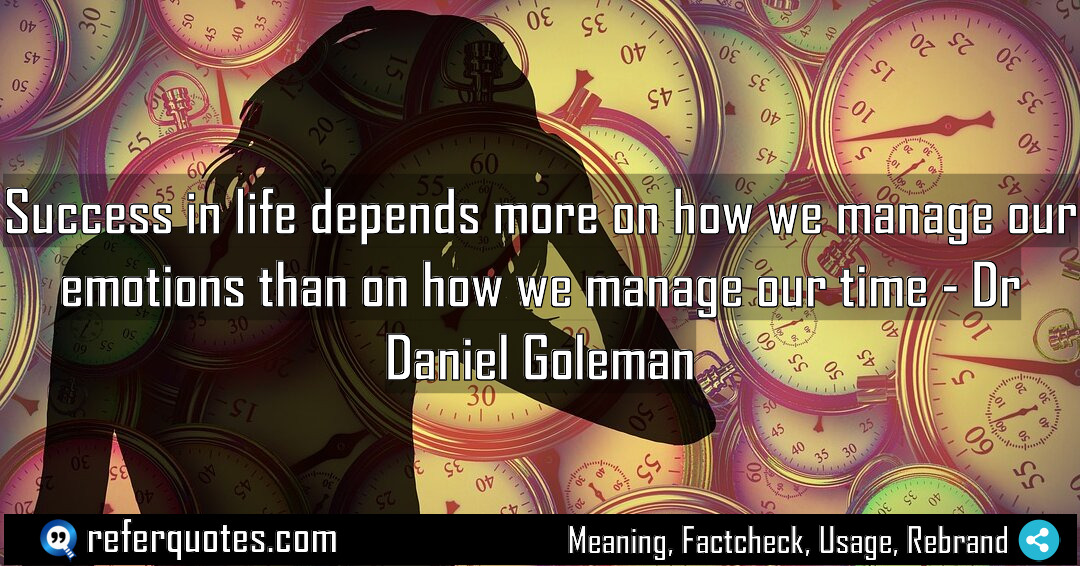You know, “Success in life depends more on how we manage our emotions” is a game-changer. It flips the script on traditional success advice. Forget just managing your calendar; you need to manage your inner world first.
Share Image Quote:Table of Contents
Meaning
It means your emotional self-control is a bigger predictor of your success than your time management skills. The core idea is that your internal state dictates your external results.
Explanation
Look, I’ve seen this play out so many times. You can have the most perfectly color-coded schedule in the world, but if you get derailed by a flash of anger, a wave of anxiety, or a spiral of self-doubt, that schedule is useless. It’s about resilience. It’s about that moment when a project fails, and instead of panicking, you calmly assess the damage. Or when a colleague frustrates you, and you respond with clarity instead of reactivity. That’s the stuff that builds careers and meaningful relationships. Time management is a technical skill. Emotional management is a human skill. And in a world of AI and automation, it’s the human skills that are becoming the ultimate currency.
Quote Summary
| Context | Attributes |
|---|---|
| Original Language | English (3668) |
| Category | Success (341) |
| Topics | emotion general (105), management (20), success general (86) |
| Literary Style | clear (348), direct (414) |
| Emotion / Mood | motivating (311), realistic (354) |
| Overall Quote Score | 82 (297) |
Origin & Factcheck
This is straight from Daniel Goleman’s 1995 book, Emotional Intelligence, which was published in the United States. You sometimes see this sentiment floating around attributed to random self-help gurus, but the research-backed origin is 100% Goleman.
Attribution Summary
| Context | Attributes |
|---|---|
| Author | Dr Daniel Goleman (50) |
| Source Type | Book (4032) |
| Source/Book Name | Emotional Intelligence: Why It Can Matter More Than IQ (54) |
| Origin Timeperiod | Contemporary (1615) |
| Original Language | English (3668) |
| Authenticity | Verified (4032) |
Author Bio
Daniel Goleman is a psychologist and bestselling author whose journalism at The New York Times brought brain and behavior science to a wide audience. He earned a BA from Amherst and a PhD in psychology from Harvard, and studied in India on a Harvard fellowship. Goleman’s research and writing helped mainstream emotional intelligence, leadership competencies, attention, and contemplative science. He co-founded CASEL and a leading research consortium on EI at work. The Daniel Goleman book list includes Emotional Intelligence, Working with Emotional Intelligence, Primal Leadership, Social Intelligence, Focus, and Altered Traits.
| Official Website
Where is this quotation located?
| Quotation | Success in life depends more on how we manage our emotions than on how we manage our time |
| Book Details | Publication Year: 1995; ISBN: 978-0553375060; Last edition: 2005; Number of pages: 352 |
| Where is it? | Chapter: Managing with Heart, Approximate page 242 from 2005 edition |
